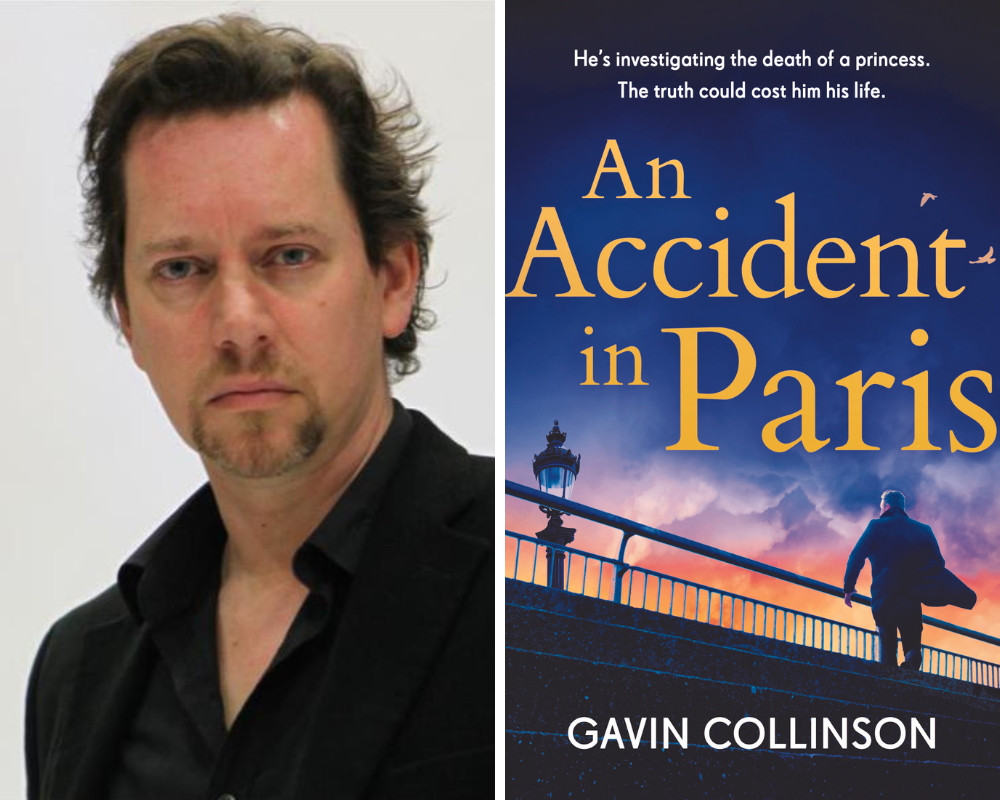Gavin Collinson asks: ‘Was I right to use the death of Diana as the central element for my new conspiracy thriller?’

To be fair, I’d been warned. Even before An Accident in Paris was a fully-formed book, well-meaning contacts told me it would be controversial. Even dangerous.
I should immediately stress that I’m not trying to appear edgy. I’m the opposite of edgy. The closest I get to edgy is tutting when ‘Ripe and Ready’ avocados turn out to be neither ripe nor ready. Yep, I’m that guy.
Anyway, my thriller started life as a screenplay. I emailed the opening scenes to producers who asked to see more, literally on the day they’d received the first fifty or so pages. I thought this boded well, until I met with two sets of execs. They explained they loved the script (hurrah!) and wanted to read more (hurrah, again!) but there was no way on God’s earth it would ever be greenlit because it ‘dared’ to examine the death of Diana and suggests the truth behind it might differ from the official version of events.
But why was that held to be so controversial?
I think much of the problem was perception and anticipation. I was told people would assume it was vehemently anti-Royal, or anti-Diana, or would seek to promote ‘crackpot’ conspiracy theories that have whirled around since the morning of August 31st 1997.
In fact, my central character, detective Marc Novak, examines many inconsistences that were highlighted in Operation Paget (the Met’s investigation into the tragedy) and Diana’s Inquest. Both of which couldn’t be more official if they wore a name badge and carried a clipboard. So highlighting anomalies that riddle both of those inquiries hardly feels like dangerous ground, unless asking questions is now a perilous practice that should only be attempted by designated experts. One would hope that isn’t the case.
The book’s characters are respectful of most figures in the public eye, but that’s not to say my detective doesn’t point the finger at certain parties and reveal another version of events that led to the crash in the Pont de l’Alma tunnel. And although the book pulls no punches in its revelatory climax, I had lawyers leaning over my laptop analysing every semicolon to make sure I wasn’t carted off to the Tower / Strangeways / Rwanda (delete as applicable).
I believe An Accident in Paris raises questions that deserve to be considered. Its narrative provides answers which you may agree with, or may sneer at. Either response is fair enough.
More troubling to me is this question: was I right morally to use the death of Diana, Dodi Fayed and Henri Paul in a thriller? I hope so. Real-life mysteries and crimes have been subsumed into works of fiction for centuries. From Agatha Christie to Sherwood, it’s an ‘accepted’ paradigm, but precedence should be no excuse, if the subject matter is clumsily executed.
Was I morally right? If you read An Accident in Paris, let me know what you think, because it remains, I suppose, the one question that the book can answer, but I can’t.
An Accident In Paris is published by Welbeck on 7 July 2022


